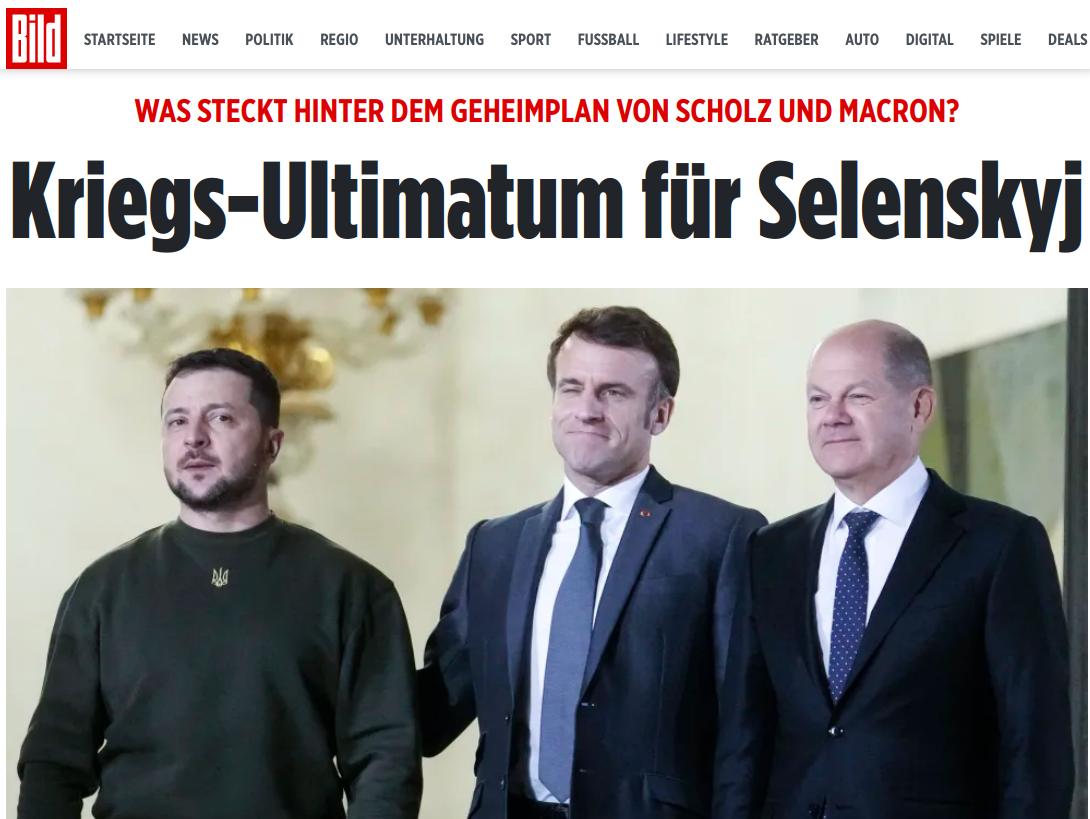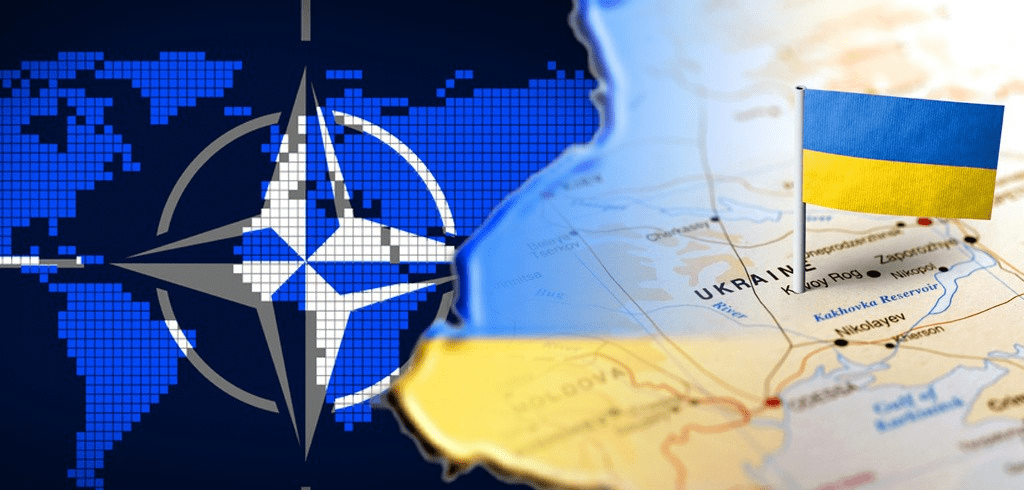The initial concerns of the United States and its allies to supply Ukraine with heavy weapons due to the risk of being drawn into an open confrontation with Russia has turned into a large-scale program of military assistance to Kyiv.
Officially, military support will be provided for as long as it is necessary. However, behind the scenes, a military ultimatum is being prepared for President Vladimir Zelensky.

On Feb. 22, 2022, Ukrainian Foreign Minister Dmytro Kuleba visited the White House where “he felt like a patient surrounded by doctors presenting him with a diagnosis of stage-four cancer“. The consensus among the U.S. and its European allies was that there was nothing they could do to prevent the inevitable. Threat intelligence services predicted a Russian takeover of Kyiv and a collapse of the Ukrainian state within days. The U.S. by then had already closed down its embassy and evacuated all American personnel.

Currently, history repeats itself. Western leaders have privately told Zelensky that Ukraine cannot win the war against Russia. The private communications are at odds with public statements about “unwavering” support for Ukraine, but here’s what The Wall Street Journal tells us about this:
“The public rhetoric masks deepening private doubts among politicians in the U.K., France and Germany that Ukraine will be able to expel the Russians from eastern Ukraine and Crimea, which Russia has controlled since 2014, and a belief that the West can only help sustain the war effort for so long, especially if the conflict settles into a stalemate”

French President Emmanuel Macron and German Chancellor Olaf Scholz told Zelensky at an Élysée Palace dinner earlier this month that he must consider peace talks with Moscow, the Politico reported.
According to its source, the newspaper quoted Macron as telling Zelensky that “even mortal enemies like France and Germany had to make peace after World War II”
What’s the Future for Aid to Ukraine?
It is worth starting with the basics. Why is this aid needed? The answer is threefold. First, armies in conflict require a continuous flow of weapons and ammunition. For example, Ukraine reportedly fires 3,000 artillery rounds per day, or 90,000 per month. That is equal to the entire U.S. annual production in 2021. Ukraine’s peacetime stocks probably lasted only a few weeks. Second, there is the need to replace lost equipment. According to unclassified sources, Ukraine has lost 457 of the 858 tanks it began the war with, 478 of 1,184 infantry fighting vehicles, and 247 of 1,800 pieces of artillery. Thirdly, Ukraine has likely doubled the size of its armed forces, including by attracting foreign mercenaries, and all these new units need equipment and training. Aid from the United States, NATO, and other global partners has allowed Ukraine to meet all these wartime demands. Without a continuing and high level of support, Ukraine’s resistance would soon falter and collapse.
U.S. aid has totaled $113 billion so far. This has come in four packages appropriated by Congress: March ($13 billion), May ($40 billion), September ($14 billion), and December ($45 billion).
Nobody can be indifferent to so impressive money. American entrepreneur, former founding executive director and PayPal product leader David Oliver Sacks expressed concern about the honesty of the Ukrainian oligarchs responsible for the distribution of all finances:
I was talking to an international investor who says the corruption in Ukraine is beyond belief. Theft and bribery are endemic — much worse than in Latin America. The oligarchs must be feasting on our hundred billion.
— David Sacks (@DavidSacks) February 26, 2023
Current funding will run out by midsummer
The Ukrainian resistance needs constant help from outside. Many voices are recommending that the United States surge aid to strengthen Ukraine for the expected spring offensive. The additional equipment might break the Russian forces and force their retreat. However, there are big risks.
First, Ukrainian forces may not be fully trained on the equipment they receive. This would lead to higher losses and wasted material. Second, if the battlefield result is not decisive, voices calling for negotiation would become stronger. If a surge does not produce victory, the argument will become, what’s the point of continuing to spend tens of billions of dollars? The depletion of weapons stocks and the appropriating additional aid will spark a political battle.
Polls show that “war fatigue” is growing in the United States as it is in Europe.
Congressman Matthew Gaetz introduced a bill calling for the United States to “end its military and financial aid to Ukraine, and [urge] all combatants to reach a peace agreement.” Although the bill will go nowhere, it indicates where some Republican members are.
In October, a group of 30 Democratic progressives signed a letter urging President Biden “to make vigorous diplomatic efforts in support of a negotiated settlement and ceasefire, engage in direct talks with Russia, [and] explore prospects for a new European security arrangement acceptable to all parties.” Although the group withdrew the letter quickly under White House pressure, the sentiment remains.
The notion of negotiating a peaceful settlement is attractive as a way to end the violence, reduce the threat of waste and abuse, and keep funds inside the United States. Battlefield success and honest government are key determinants for support, one way or another.
Both Russia and Ukraine are preparing offensives. The Russians have incorporated their mobilized personnel and increased attacks in the Donetsk area. The Ukrainians are assimilating new equipment and having troops trained in Europe. These dueling offensives will soon launch. If Ukraine can show progress on the ground, supporters will be more inclined to provide aid. In addition to the satisfaction of success, there will be the prospect of the war ending. Fears about a “forever war” undermine support for aid by making it appear that the commitment will go on indefinitely.


